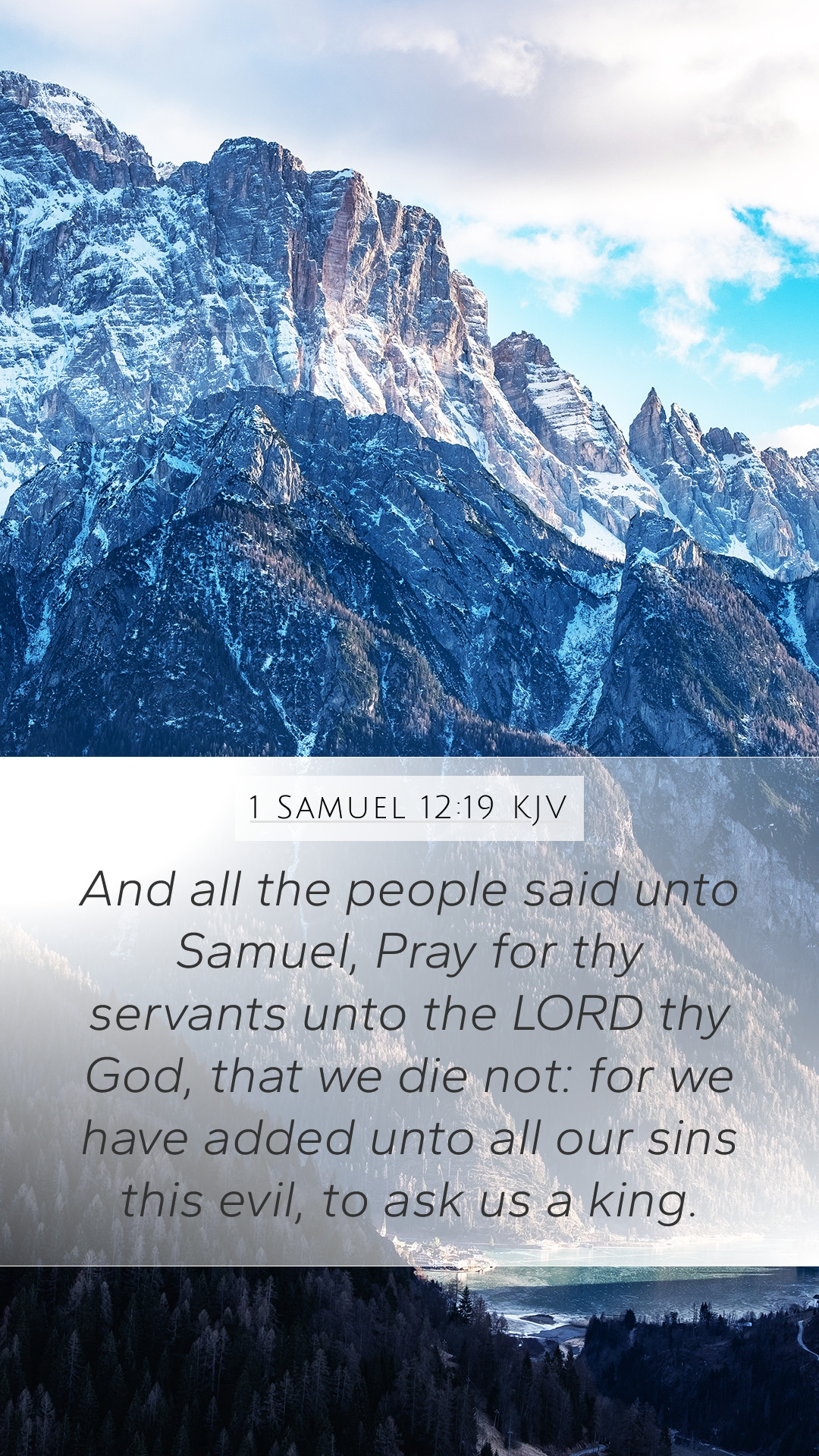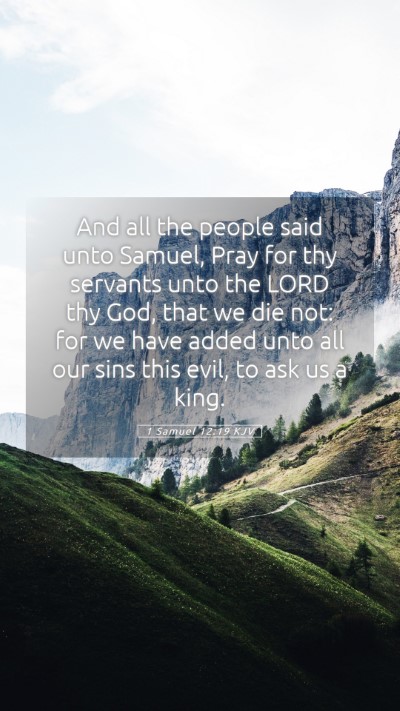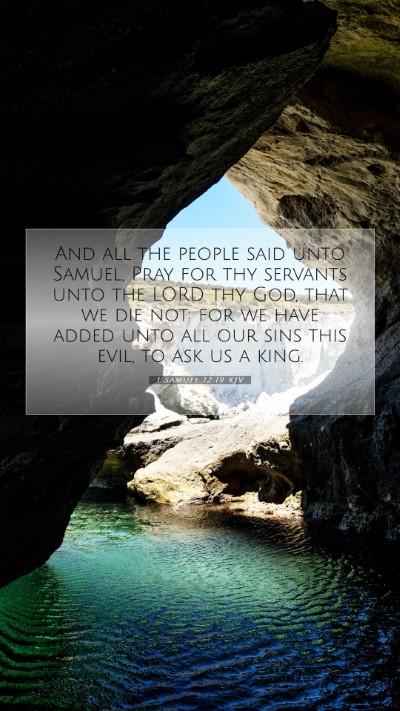Understanding the Meaning of 1 Samuel 12:19
This analysis aims to provide a comprehensive exploration of 1 Samuel 12:19, incorporating insights from respected public domain Bible commentaries. This verse encapsulates significant themes regarding Israel's desire for a king and the implications of their choice, which forms the basis for profound spiritual lessons that resonate with readers today.
Verse Text
"And all the people said unto Samuel, Pray for thy servants unto the LORD thy God, that we die not: for we have added unto all our sins this evil, to ask us a king." (1 Samuel 12:19, KJV)
Overview of the Context
In this chapter, Samuel addresses the people of Israel as they grapple with the consequences of their choice to seek a king, which was seen as defiance against God's rule. This moment reveals the tension between divine leadership and human authority, pointing towards Israel's need for repentance and a sincere relationship with God.
Insights from Commentaries
-
Matthew Henry's Commentary
Henry notes that the plea for Samuel to pray emphasizes their recognition of guilt and fear of judgment. The phrase "we die not" reveals the awareness of sin and the accompanying dread of divine retribution. This shows the necessity of intercessory prayer and highlights the role of prophets in guiding God's people.
-
Albert Barnes' Notes
Barnes provides an analysis of the people's acknowledgment of their transgressions. The desire for a king is qualified by their admission of seeking "this evil," indicating their understanding that their request was not merely political but spiritually detrimental. The call for prayer suggests a yearning for restoration and mercy from God.
-
Adam Clarke's Commentary
Clarke elaborates on the significance of the people's recognition of their sinfulness. He highlights that their request stemmed from a lack of faith in God's providence, leading them to seek a human king instead. Clarke emphasizes the importance of proper leadership, underscoring spiritual governance over human authority.
Theological Implications
The verse serves as a profound reminder of the need for divine guidance in governance and personal life. It emphasizes the importance of prayer and repentance in the face of human shortcomings and the acceptance of God's authority over earthly rulers.
Related Bible Cross References
- 1 Samuel 8:6-7: Discusses the people's demand for a king and God’s response.
- Deuteronomy 17:14-20: Outlines God's intentions regarding kingship in Israel.
- Proverbs 21:1: Speaks to God's sovereignty over the hearts of rulers.
- Jeremiah 2:19: Highlights the consequences of turning away from God.
- 1 Timothy 2:1-2: Encourages prayers for leaders and those in authority.
Applying the Verse Today
As we consider the implications of 1 Samuel 12:19 in our lives, we are urged to reflect upon our own choices and the influence of leadership. This verse encourages us to seek a deeper relationship with God, to recognize His authority over every aspect of our lives, and to understand the importance of prayer and accountability.
Conclusion
In sum, 1 Samuel 12:19 serves as a poignant reminder of the significance of understanding our relationship with God, recognizing our sin, and the necessity of prayer in our lives. The insights from Matthew Henry, Albert Barnes, and Adam Clarke provide a rich framework for interpreting this crucial passage, paving the way for further study and reflection.


